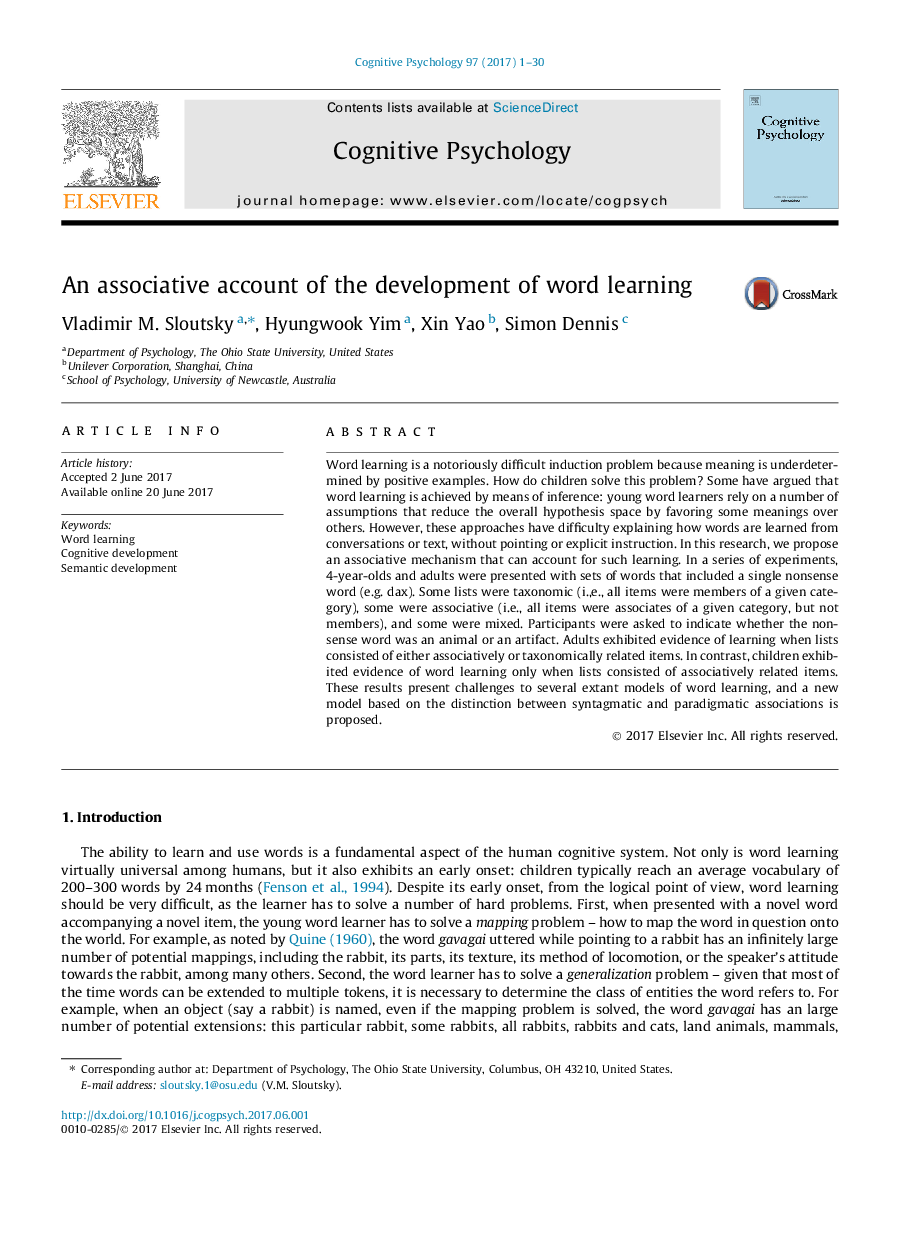| کد مقاله | کد نشریه | سال انتشار | مقاله انگلیسی | نسخه تمام متن |
|---|---|---|---|---|
| 5039689 | 1473367 | 2017 | 30 صفحه PDF | دانلود رایگان |
- This research addresses how words are learned from contexts.
- An associative model of word learning is proposed.
- The model predicts word learning better than powerful rational models.
- It is discussed how and why word learning may change in the course of development.
Word learning is a notoriously difficult induction problem because meaning is underdetermined by positive examples. How do children solve this problem? Some have argued that word learning is achieved by means of inference: young word learners rely on a number of assumptions that reduce the overall hypothesis space by favoring some meanings over others. However, these approaches have difficulty explaining how words are learned from conversations or text, without pointing or explicit instruction. In this research, we propose an associative mechanism that can account for such learning. In a series of experiments, 4-year-olds and adults were presented with sets of words that included a single nonsense word (e.g. dax). Some lists were taxonomic (i.,e., all items were members of a given category), some were associative (i.e., all items were associates of a given category, but not members), and some were mixed. Participants were asked to indicate whether the nonsense word was an animal or an artifact. Adults exhibited evidence of learning when lists consisted of either associatively or taxonomically related items. In contrast, children exhibited evidence of word learning only when lists consisted of associatively related items. These results present challenges to several extant models of word learning, and a new model based on the distinction between syntagmatic and paradigmatic associations is proposed.
Journal: Cognitive Psychology - Volume 97, September 2017, Pages 1-30
